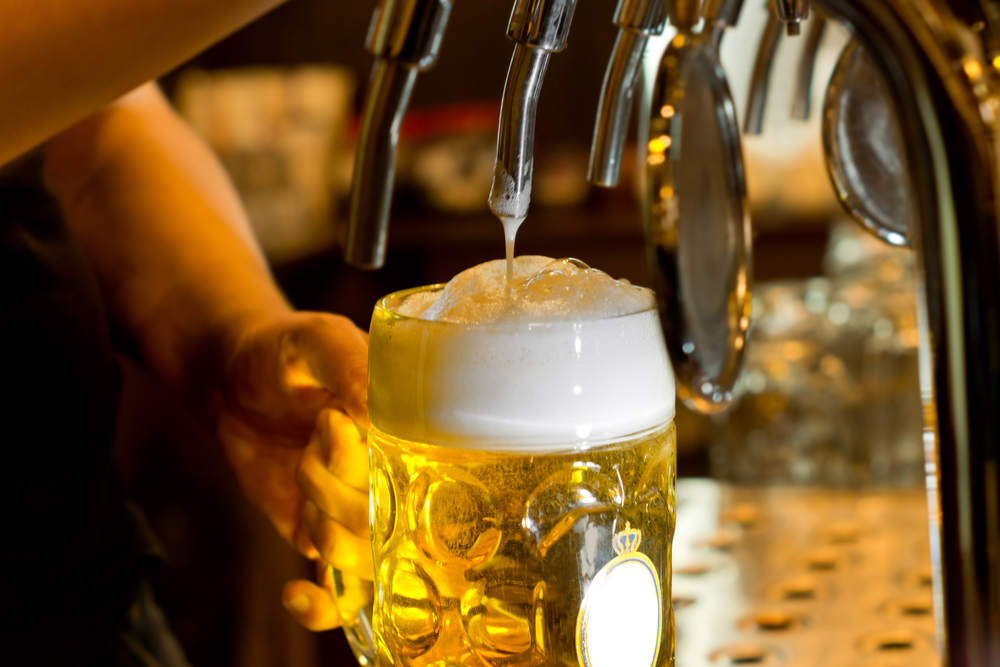Typically at this time of year, we relax the reins a little bit regarding our militaristic approach to training and racing. We train less, sleep more, stay up later, pay less attention to exactly what we eat and drink.
I love a high-quality Belgian beer. If I'm at a gathering and the beer selection is cheap swill, I will take a pass. Beer drinking, to me, is an experience and something to enjoy. It's not about "getting a buzz" or having a drink for the sake of drinking. In doing some research on how alcohol impacts athletic performance, I came upon a study done by UC San Diego that states the average college student drinks more than 34 gallons of alcohol every year. Think about that. There are nearly eleven 12-ounce beers in a gallon, so we’re talking somewhere in the 350-375 beers in a year. While this only adds up to a beer a day, most of the consumption comes via binge drinking during the weekends and typically not every weekend.
Alcohol may provide as much as 20 percent of calories in the diet of some drinkers. On the surface, alcohol consumption seems harmless and a normal part of the college experience. And, for adults a drink or two in the evening is a way to wind down after a rough day at work. However, research overwhelmingly suggests that alcohol use and athleticism do not go hand in hand.
Although it may not be realistic to eliminate the use of alcohol altogether, Masters athletes may want to evaluate their alcohol consumption and determine whether or not they could benefit from reducing their consumption. The following are just some of the effects drinking a bit of alcohol can have on us.
DEHYDRATION
Alcohol is a diuretic that can cause dehydration and electrolyte imbalances. The more alcohol and the stronger the alcohol you drink, the more severe the dehydration can be. If you drink a lot, the ensuing dehydration can require several days to a week for full recovery. While dehydration can lead to things like cramps, muscle pulls, and muscle strains, it can also lead to extreme maladies such as severe brain impairment and even death when coupled with high temperatures and intense workouts (most notable during two-a-days). This reminds me of a 100-mile ride I did the morning after my bachelor party. I woke up dehydrated and feeling less than stellar. The group I was with was a “who’s who” of professional triathletes, duathletes and cyclists, and our collective goal was to cover the 100 miles as fast as possible. My HR was a good 15-20 beats higher than it should have been, but I hung on until about mile 90 before completely exploding. It was agony. I limped in about 10 minutes behind the front group, in 3h 51m. I don’t even remember the majority of the ride because I felt pretty awful.
TESTOSTERONE
Alcohol also negatively impacts serum testosterone levels. Decreases in testosterone are associated with decreases in aggression, lean muscle mass, muscle recovery and overall athletic performance. This can also cause testicular shrinkage, breast enlargement, and decreased sperm development in males. In females, this may cause an increase in the production of estradial, (a form of estrogen) which may increase the risk of breast cancer. This isn’t the result of having a single drink most nights. But, if it common for you to consume a bottle of wine at dinner, you are unknowingly opening yourself up to these types of risks. At the very least, you are setting yourself up for a less than stellar workout the next several days.
PERFORMANCE
The biggest thing here is that alcohol interferes with lactic acid breakdown and can result in increased soreness after exercise. The more quickly blood lactate levels rise and the harder it is for your body to process that lactate, the slower you will go.
FAT STORAGE
With nearly as many calories per gram as fat (7cal v 9cal), alcohol is stored much like fat in the body. Also, alcohol destroys amino acids and stores them as fat. Alcohol consumption, therefore, increases fat storage. Powerful energy pathways (like glycolysis) are impaired and large amounts of lactic acid are produced, this results in decreased energy, decreased muscle recovery, and increased muscle soreness. And because alcohol is typically consumed in conjunction with our normal food intake, we tend to consume a lot more calories than our body needs, leading to even more fat storage. Carrying around unnecessary weight absolutely negatively impacts athletic performance.
SLEEP
Sleep has a huge impact on athletic performance. Get too little of it and your body’s ability to repair itself is compromised. The fatigue we feel from a lack of sleep negatively impacts our ability to perform in a workout or a race. Alcohol has a detrimental effect on both the quality of sleep and on daytime attention. The effects of alcohol on sleep and attention are complicated to define and have considerable variability in individuals.
That said, alcohol seems to accelerate falling asleep, at least in subjects who do not tend to fall asleep immediately. “Great!” you might say. However, the negative effects arise later and affect the quality and duration of sleep. Alcohol disturbs or interrupts the sequence of paradoxical sleep and light sleep, both of which are essential to a healthy and full night’s sleep.
The less and worse sleep you get, the worse your athletic performances will be. Disturbed sleep stimulates the sedative effects of alcohol during the waking hours. Alcohol consumed late in the evening will noticeably reduce performance the following morning. By producing an accumulation of nights of poor sleep, well-being starts to be impacted to a considerable degree.
CONCLUSION
So, should we raid the liquor cabinet and pour all of our alcohol down the drain? No! But, should we be more cognizant of what and how much we are imbibing? Absolutely. It is way too easy to pass off our consumption. We are social creatures and socializing leads to greater alcohol consumption. We enjoy a beer or a handful of them while watching sports. We tend to use alcohol as a destressor after a challenging day at work. And so on.
What is important here is that you come away understanding the real and potential ramifications of your drinking habits. If you have one drink an evening, you’re probably fine. If you have 2-3 most nights, you’re imparing your ability to perform optimally in your training and racing. I’m not suggesting you have a drinking problem. Rather, you can now decide which is more important to you – multiple drinks per evening, or achieving your athletic goals.
At some tipping point, there is a choice to make. I enjoy one beer per evening. During the important weeks of my racing season, I cut back to a beer every other evening and even cut it out altogether. I do sleep better, my body feels better after hard bouts of training because it’s repairing itself more quickly and completely. My training stats see an uptick, as does my racing. So, why not cut alcohol out completely? Because I enjoy it. I don’t need it, but a top quality Belgian beer is quite tasty. But, sometimes I do take a pass. Sometimes a beer does not sound appealing so I leave it in the fridge.
Hopefully you have found this to be somewhat enlightening.
Happy Training,
Coach Nate


 RSS Feed
RSS Feed